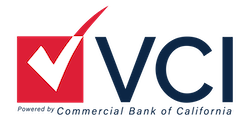
Cost-Effective Payment Solutions: How ACH Saves Merchants Money
In today’s fast-paced digital world, merchants need to adopt cost-effective payment solutions as they significantly lower operational costs, improve profit margins, and cater to the unique needs of their clients. Enter the automated clearing house (ACH), a key system progressively transforming the financial industry.
Popular ACH uses include direct deposits, vendor payments, payroll, and other types of money transfers, making it an excellent option for processing safe, secure, and cost-effective payments. ACH offers a fast, reliable, and seamless method of fund transfer that’s both familiar and secure.
The strongest motivator for merchants to adopt ACH is its cost-saving advantage. ACH payments feature lower transaction fees than the high costs associated with traditional credit card payment systems. Therefore, by integrating ACH with their service offerings, ISO resellers can offer an appealing value proposition to their customers, helping them attract a broader range of businesses.
Comparative Analysis: ACH vs. Credit Card Fees
When it comes to digital payments, financial institutions evaluate speed, security, and cost. In this regard, ISO resellers need the most efficient and affordable payment processing methods to offer their clients. Here is a detailed breakdown comparing the typical credit card and ACH processing fees:
Credit Card Processing Fees
The average credit card processing fee is between 1.15% and 3.5%, according to a report by The Motley Fool Ascent. These fees comprise different types of charges, such as:
Interchange Fees
Interchange fees are also known as a discount rate or a swipe fee. These are the payments that merchants make directly to card issuers each time a customer uses their credit card to make a purchase.
The following are the average interchange fees for the four main payment networks per transaction:
- Visa: From 1.15% + 5 cents to 2.40% + 10 cents
- American Express: From 1.43% + $0.10 to 3.30% + $0.10
- Mastercard: From 1.15% + 5 cents to 2.50% + $0.10
- Discover: 1.4% plus $0.05 to 2.4% plus $0.10
Assessment Fees
Also known as pass-through fees, assessment fees are paid to the credit card network simply for using their network. The following are the average assessment fees for the main payment networks:
- Visa: $0.0195 for every transaction plus 0.14% of the cumulative credit card volume.
- American Express: 0.15% of the entire card volume.
- Mastercard: $0.0195 for each transaction plus 0.1275% of the total transaction amount.
- Discover: $0.0195 for each transaction plus 0.13% of the cumulative card volume.
Payment Processor Fees
The payment processor may charge an additional fee for facilitating the transaction, known as the processor markup fee. Here are the processor markup fees for the primary payment networks:
- Visa: 0.25% plus 10 cents.
- American Express: The fees are part of the discount rate.
- Mastercard: 0.25% plus 10 cents.
- Discover: 0.25% plus 10 cents.
ACH Fees
Unlike credit card transactions, ACH payments feature some of the lowest fees of any electronic transaction method, making them a convenient and reliable electronic payment method for large transactions and regular transfers. Note that ACH fees vary depending on different factors, such as the volume of transactions. Companies with big transaction volumes often get cheaper rates per transaction.
The following is a detailed breakdown of the associated ACH fees:
- A flat fee between $0.20 to $1.50 per transaction
- A monthly fee ranging from $5 – $30
- A batch fee ranging from $0 – $1.00
- An ACH return fee averaging $2 – $5 for every return
- A chargeback fee ranging from $5 to $25 for every instance
If those fees look small and appealing, add on the potential for discount rates of 0.5%-2.5% if a merchant processes a high volume of ACH payments on a daily basis. Couple that option to save merchants even more money with the ability as a reseller to add on your own additional billing opportunities – that’s how we help you earn more money.
In the long run, the aggregate per-transaction fees are much lower for ACH payments than credit card transactions. These reduced fees not only save merchants money, but introduce potential profit margins for ISO resellers who get their clients set up on ACH payments.
Examples of How Merchants Can Save By Using ACH
Take the example of a medium-sized business with a transaction volume of $600,000, an average transaction size of $300, and a total of 2,000 transactions.
Credit Card Processing Fees using Lower Bound Visa calculations:
Interchange fees
1.15 of $600000 = $6900
$0.05 for every transaction x 2000 transactions = $100
Total interchange fees = $7,000
Assessment fees
$0.0195 x 2000 = 39
0.14%x $ 600,000 = $8,400
Total assessment fees = $8439
Processor Markup Fees
0.25% x $600,000 = $1500
$0.10 x 2000 = $200
Total processor markup fees =$1700
Total Credit Card Fees = $7,000 (Interchange) + $8,439 (Assessment Fees) + $1700 (Processor Markup Fees) = $17,139.
ACH Fees Calculation
Transaction fees
$0.2 x 2,000 transactions = $400
Monthly Fees = $20
Total ACH Fees = $420
Total Savings = $17,139 – $420 = $16,719 per month
Reducing Operational Costs
One of the top advantages of ACH payments is that they significantly streamline financial transactions by reducing the need for manual processing of checks, wires and cash. This shift introduces several benefits, explained below:
- Cost-savings: ACH helps businesses save on various administrative fees for sending checks or wires, such as printing, postage, and processing costs.
- Operational efficiency: ACH transactions are processed electronically, eliminating the physical handling of checks and cash, which is time-consuming and labor-intensive. Also, ACH transactions are settled within two business days, further saving time.
- Reduced errors: Manual processing of cash and checks is susceptible to human error, which ACH reduces by automating the payment process.
Benefits of Automated Recurring Billing and Bulk Payment Handling
The following are the top benefits for merchants who use ACH payments for recurring billing and bulk payment handling:
- Better cash flow management: Automated recurring billing promotes a steady cash flow and reduced delinquencies.
- Customer satisfaction: Automatic payments can increase customer satisfaction and loyalty. This satisfaction trickles up to the reseller-merchant relationship as well.
- Time savings: Automated billing and bulk payments save merchants time, allowing them to channel their efforts to other tasks.
- Scalability: Bulk payment handling can help merchants handle multiple transactions simultaneously, streamlining processes.
Minimizing Fraud and Chargebacks
ACH transactions are generally less prone to fraud and chargebacks than credit card payments. The implementation of the ACH network requires enforcing strong security and data requirements. For example, most ACH transactions feature pre-verification processes to verify account ownership before processing bulk payments. In fact, according to recent data from NACHA, less than 0.03% of ACH transactions are rejected by consumers as unauthorized.
Cost Implications of Chargebacks
The following are the cost implications of chargebacks:
- High chargeback fees that range from $20 to $100, depending on the type of transaction.
- Operational expenses: A lot of time and resources must be set aside to investigate and solve disputes. Also, handling chargebacks requires substantial administrative work, which can be draining and take valuable time from other important activities.
- Increased processing fees, tying up financial resources that could have been used for other important operations.
The ACH network can significantly reduce the above chargeback risks because of its advanced security features and streamlined processes. As mentioned, ACH transactions require direct authorization from the account owners, reducing the likelihood of unauthorized payments. This, in turn, reduces the prevalence of disputes that lead to chargebacks.
Moreover, ACH payments involve direct bank-to-bank transfers regulated by advanced fraud detection systems, improving security and significantly reducing fraud incidences. All in all, the efficiency, affordability, and security of ACH payments offer the perfect solution for combating the risks of chargebacks.
Conclusion
ACH payments provide significant cost savings and operational efficiencies, allowing merchants to save money. By lowering processing fees for merchants, the ACH network helps ISO resellers increase their revenue base without adding costs to the merchants.
VCI’s ACH and eCheck Processing services offer the most secure and stable payment processing technologies. Apply to start processing ACH payments today.
